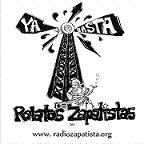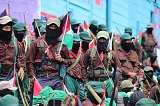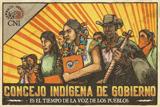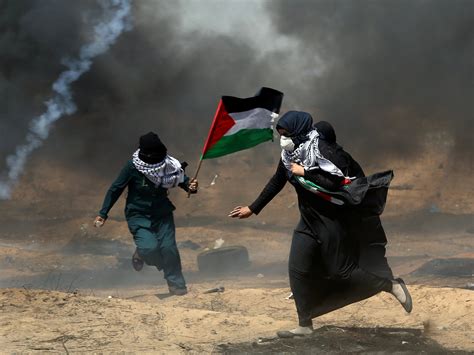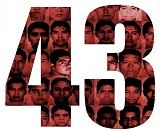
Archivo por autor:

(Español) Urgente: Amenazas en el retorno a San Juan Copala de desplazados
En estos momentos está partiendo del zócalo de la ciudad de Oaxaca la
caravana de retorno de los desplazados de San JUan Copala a sus
hogares.
La noche previa el gobernador amenazó a los integrantes del municipio
autónomo de que ellos serían los responsables de las agresiones que
sufrieran por parte de los paramilitares, en una reunión en la que
este gobernador estuvo acompañado permanentemente por los dirigentes
de los grupos paramilitares.
El gobernado ha amenazado, por medio de funcionarios públicos, con
impedir el libre transito de los desplazados a sus hogares mediante la
fuerza publica en algún lugar de la ruta de traslado.
Hace 10 minutos nos entrevistamos con el Lic. Saul Bolaños,
representante del Estado Mexicano ante las mesas de trabajo para la
implementación de las medidas cautelares 197-10 a quien pedimos ante
esta actitud amenazante del gobernador del Estado de Oaxaca la
protección del gobierno federal.
Igualmente se firmó una minuta con la Comisión estatal de derechos
Humanos de Oaxaca en la que esta se compromete a acompañar el proceso
de retorno de los desplazados y se ha hecgho la solicitud a la
Comisión nacional de Derechos Humanos.
Pedimos a la Comisión Interamericana de derechos Humanos establecer
comunicación con el gobernador del Estado y solicitarle birnde las
condiciones de seguridad para el libre transito y el retorno de los
desplazados de San Juan Copala.
En correo siguiente, enviaremos al la CIDH el documento firmado por el
secretario general de gobierno del estado de Oaxaca, el numero 2 en la
jeraquia del gobierno del estado, en la que el gobierno del estado se
comprometió a garantizar el completo retorno de los desplazados a mas
tardar el 20 de enero del 2012, el cual a pesar de haber sido firmado
por la autoridad fue desconocido por estas y en su lugar el gobernado
trató de resolver el problema de los desplazados de San Juan Copala
poniendolo a votación de las “autoridades” impuestas por los dos
grupos paramilitares que asolan la región.
Este es un mensaje urgente.
David Cilia Olmos
Beatriz Cristobal Delgado
Presidente del Foro Permanente por la comisión de la Verdad
Copeticionario Medidas cautelares MC 197-10
Relatos Zapatistas program, January 1, 2012
What is the current state of the occupy movement and where is it headed? Since November police and city governments have raided and destroyed encampments, arrested and prosecuted occupiers, and more often than not successfully prevented the reoccupation of public spaces. In this light it’s become commonplace to say that a fundamental shift has taken place in the movement. Adbusters, for example, published a statement saying that OWS should call it a victory and withdraw, at least for the time being in order to plan for the spring—“phase one” had ended, and “phase two” was beginning. There is something useful about the idea of phases, of identifying this hinge or turning point—for example, it lets us differentiate in broad, tactical terms between the occupation of public or semi-public space on one hand and the occupation of private or “ambiguous” space on the other. But in other ways the distinction is problematic. It relegates the struggles that inspired and created the conditions in which OWS was possible to a sort of pre-history, a “phase zero”—insurrections like the argentinazo that we heard about earlier in the show, not to mention Tunisia, Egypt, Spain, Greece, as well as, closer to home, the student movement and the struggle around justice for Oscar Grant. Also, it makes it hard to see the proliferation of diverse tactics that have already been used in occupies around the country, as well as the subtle and not so subtle differences with regard to the varying conditions in which each occupy constitutes itself as a force. By zooming in on the Bay Area and looking at some of the occupy experiences here we’re hoping to sketch out a more nuanced view of this transition point.
Complete program (2 hr):(Descarga aquí) Audio Player
Oscar Grant memorial march (6 min):(Descarga aquí) Audio Player
Interview with students from SFSU (23 min):(Descarga aquí) Audio Player
Interview with Laura and Ali from Occupy Oakland (35 min):(Descarga aquí) Audio Player

By Word of Mouth No.16 – independent news sheet that aims to spread news of what is happening in the organized communities of Chiapas
Boca en Boca No 16, December 2011
Editorial (“Don’t chuck it, share it”)
Boca en Boca [“by word of mouth”] is an independent news sheet that aims to spread news of what is happening in the organized communities of Chiapas. It aims to oppose the strategy of the government and generate solidarity by providing summaries and extracts from the communities’ news releases. In the long term, the goal is to distribute it among the indigenous communities in their own language.
No to “the Cancun of Chiapas” at the Agua Azul waterfalls
Adherents to the Other Campaign from the Ejido San Sebastian Bachajón deny the official story from the delegate of the Chilón government concerning the clashes which occurred on the 1st November 2011, “due to the dispute about the lands of Rancho El Vergel, in the municipality of Citalá, where three people pretending to be Zapatistas lost their lives; they were badly disguised by C Carmen Aguilar Gomez and his son, the faithful friend of the government delegate and the ejidal commission”.
They repeat that “on several occasions we have publicly denounced C Carmen Aguilar Gomez and his son, who were expelled from the organization of the Other Campaign last year, and also from the organization. At no time have we said that we would take that ranch”.
They reaffirm “that these are the same people who participated in the violence last February at Agua Azul. It is clear that this comes from the government and that these people have nothing to do with the organization and that at no time has the organization had anything to do with the occupation of any ranch”.
On the 26th November, through a second press release, they recalled the actions of these same groups and leaders “with the intention of taking advantage of our natural wonders and turning them into the Cancun of Chiapas”.
Las Abejas (the Bees) defend and care for their hive
“The Civil Society Organization, Las Abejas of Acteal, objects strongly to the interview conducted by Eugenio Bermejillo, director of the organization “Red de Comunicadores Boca de Polen” (Pollen´s Mouth Communicators Network) …, with Sebastian Gomez Perez, who he introduced as “President of the Board of Directors of the Civil Society Organization Las Abejas“. In this regard, we wish to explain and to remind you that this is not the first time this group has passed itself off as the organization Las Abejas“.
In 2008, a group of “leaders” of Las Abejas separated from our organization, and as a result we now announce publicly that “this group of people can in no way speak on behalf of the Civil Society Organization Las Abejas“. “The community radio project Radio Chanul Pom … no longer belongs to Las Abejas”. The name of Las Abejas has “on various occasions been used in marches, in the development of projects or assistance programmes from the bad government, and as many times we have protested and publicly asked this group to find another name for their organization”.
“The aim of this group in using the name of Las Abejas, is to gain power for electoral motives, economic benefits and a special deal with the government”.
Even though the names sound the same, “in reality our goals, mission, vision, philosophy and aims have nothing in common”.
“It is very clear that Eugenio Bermejillo intends to promote confusion around the organization Las Abejas and to feed the counterinsurgency policy, so that the Acteal massacre may be forgotten, and its material authors and masterminds remain unpunished”.
Poetry: The four walls of the prison
Four walls that enclose four walls that steal four walls that kill four walls that fall
Four walls that obey four walls that are visible four walls that are fearful four walls that do not exist
Looking at you and your owner faint because we are around you we are like the stars and the sun burning at noon
Pedro Lopez Jimenez, Solidarity with “La Voz del Amate”
Main Routes used by Central American migrants crossing Mexico
“Before the pain and suffering of our people and our Mother Earth”
During their march on the 24th of November, el Pueblo Creyente (the Believing People) and the base ecclesiastical communities denounced:
“The lack of strong action by the relevant authorities who control the trade and consumption of alcohol and drugs and the opening of bars, brothels and other places which do so much damage to our communities”
“The potential threat posed by mining concessions” “The use of our national resources to drive the ambitious projects of transnational corporations” “False environmental policies …, the seizure of our lands as a commodity to mitigate the effects of climate change and allow the continuation of a development model that refuses to reduce polluting emissions”
“The noxious effects of projects that lead to cultural change and the abandoning of food production, in order to promote mono-cultivation for industry”
“The risk posed to our native seeds, the acceptance of GM crops and the ambiguous attitude of government officials and agencies towards the big branches of industry”.
“We re-emphasize our solidarity with the Movement for Peace with Justice and Dignity, and with the victims of the violence which has erupted in many states of the country in recent years. In particular we urge a change in policy to give justice to our brothers and sisters who are unjustly imprisoned. At the same time we join with other peaceful struggles in defence of Mother Earth, land and life that are being carried out in other states and throughout the world”.
In brief
3rd November – Inhabitants of the municipality of Chicomuselo report violations of human rights by the Mexican army.
5th November – The community of believers in St. Peter the Apostle and Martyr of Chenalhó show solidarity with the hunger strike of political prisoners in Chiapas by three days of fasting.
10th November – Chol communities in the north selva zone denounce the strategy of land clearance of the agricultural authorities through the Fanar programme.
13th November – MOCRI-CNPA-MN clarifies a note in the newspaper Cuarto Poder concerning the demand for punishment of the murderers of Martha Gómez Pérez.
18th November – Gunmen attack and imprison adherents to the civil resistance against high electricity rates, Teopisca.
25th November – Women of the communities of Chiapas march, “the Mexican government is required to guarantee our right to live a life without violence”.
Political Prisoners, 40 days on Hunger Strike
Here we report on a series of events which marked, this November, the campaign for the release of political prisoners in Chiapas, beginning with a hunger strike, which was accompanied by their families, who joined them by setting up an encampment in San Cristobal de Las Casas.
In a letter of 2nd November, Alfredo López Jiménez and Rosa López Díaz from ´Solidarity with the Voice of Amate´ report the death of their son Natanael López López, “who was born 4 years ago with cerebral palsy, without movement in his whole body, among other diseases he was suffering. The cause of this was the torture that was done to my wife when we were arbitrarily detained in 2007, and she was 4 months pregnant”. “He died through medical negligence as treatment was denied to my family “.
On the 7th of November, the day the hunger strike of the prisoners ended, along with the encampment of the families, Enrique Gómez Hernández from ´Solidarity with the Voice of Amate´ denounced, “since the 8th of October, our family started a protest, stating that the requests they made to the government exactly 30 days ago … the government has refused to intervene in the matter and completely ignored us, even our families, no matter what our families are suffering and leaving aside the promise that he signed when he made his political campaign and now that he is in power he does not know anyone and yet he is still so proud to announce in the media: “actions, not words”.
“But it seems the government prefers to tell us lightly that we cannot benefit, much less gain our freedom, without considering the state of health of the compañeros in CERSS No. 5, which is very delicate as they are between life and death, due to the action they have undertaken (of the hunger strike) … and the government does not care, it has ignored us completely. ”
At the end of the hunger strike a letter of thanks was sent to individuals and organizations who supported the action in various parts of Mexico and the world, “do not be discouraged, do not weaken, do not be disturbed, but be more courageous, strong, brave and united in all things and with us. From here in Chiapas, southeastern Mexico, in the trenches of our resistance we will persist and resist”.
On the 15th November,”* Andrés Núñez Hernández * and * José Díaz López * were released, both members of the organization ´Solidarity with the Voice of Amate´. Andrés and José, after 9 years and 8 months of wrongful imprisonment, were released under the legal concept of a suspended sentence”.
“Today the following remain hostages of the bad government of Felipe Calderón and Juan Sabines: the compañer@s Alfredo Lopez Jimenez, Alejandro Diaz Sántiz, Pedro López Jiménez, Juan Díaz López, Rosario Díaz Méndez and Rosa López Díaz in CERSS No. 5 in San Cristobal de Las Casas, Enrique Gómez Hernández held in CERSS No. 14 El Amate, Juan Collazo Jimenez held at CERSS No. 6, and compañero Alberto Patishtan Gómez held captive in CEFERESO N°8 in Guasave, Sinaloa, (who was transferred during the strike as a punishment). All have been detained arbitrarily, have suffered torture and violations of their fundamental human rights and therefore have staged a hunger strike and fast of 39 days, which has been ignored and repressed by the authorities”.
On the 14th of November, a member of the ´Voice of Amate´, Rosario Díaz Méndez, denounced “the medical deficiencies that are suffered in state prisons have led to complications in various illnesses that are easy to cure, especially in CERSS No. 5 which suffers much medical malpractice”. “I suffer from an illness called epilepsy, and I have been suffering from nausea for two years”. A similar complaint about the lack of medical attention was made by Alfredo Lopez Jimenez on the 15th November.
Even during the hunger strike it was announced that “the authorities of CERSS No. 5 in San Cristobal de Las Casas, have on several occasions refused entry to health personnel who had come with the intention of visiting” our prisoner compañeros, who were already in a serious state of health.
Tenosique, Tabasco, the forgotten frontier
On the 23rd August last, the people of the Nueva Esperanza community, Zone of El Peten, Guatemala, were displaced through a violent eviction by the army of their country. They are now refugees on the border next to the community of Nuevo Progreso, in the Municipality of Tenosique, Tabasco, “where they have been surviving with great difficulty for more than eighty days, in extremely precarious conditions which endanger their health and integrity”.
They also “are being threatened, and unsupported information is being disseminated about them, such rumours increase the vulnerability of their condition”, generating “acts of exclusion, discrimination and xenophobia against them”.
“The governments of Guatemala and Mexico are not providing the humanitarian assistance which they are obliged to provide for displaced persons and refugees”.
“Various organizations in Mexico, forming a Civil Observation Mission, reported in October with great difficulty the critical situation in which they found nearly three hundred people, of whom 115 are children or adolescents”. “The Mission documented, as well as the inhumane conditions, charges against the displaced population”, which were not supported by the evidence, “but were supported by the authorities in Guatemala”.
“During the first days of November we learned of a letter which the residents of Nuevo Progreso, Tenosique, had sent to the authorities accusing ´the people´ of committing excesses, getting drunk, beating their wives and bearing arms”. “We are concerned that an authority in Mexico or Guatemala may be contributing to the spread of rumours that may cause or lead to discrimination, or violent responses”.
They request “the Mexican government to give effect to the principles of solidarity, hospitality and protection, which should govern immigration policy”, “the Government of Guatemala was asked to facilitate dialogue, guaranteeing that the community of Nueva Esperanza will have appropriate and consistent standards of human rights, and their lands, homes, and in general all conditions for a dignified life restored to them”.
Follow-up information
14th November – 5 years after the massacre of Viejo Velasco, Ocosingo, (which was a support base of the EZLN*, in the municipality of Vicente Guerrero) “The material and intellectual authors (the perpetrators and instigators) of the massacre have not been investigated, much less brought to trial; however, survivors of the event and people from surrounding communities who provided humanitarian assistance were identified by the Attorney General of the State of Chiapas as responsible for the slaughter”. *not at the time of the massacre
Acteal denounces the countless cases of impunity in Chiapas. “We must not be afraid to demand respect for human rights, we must speak out. We know that as human beings we are suffering very much, but it is not only us who suffer, but also our mother earth”.
Your ideas are important to us. To share your suggestions and comments, send them to us: bocaenboca@riseup.net
Boca en Boca needs your support:
*You can make copies of this article and distribute them. *If you know Tzotzil, Tzeltal or other indigenous languages, ¡Welcome!
*We invite you to be a part of the “Boca en Boca” Project. Email us explaining why and how you can contribute.
*Contact us to make a donation.
*Are you interested in helping to distribute Boca en Boca in electronic format?? Send us your email address.
Kolectivo BoCa En BoCa

(Español) Boletín Frayba: Desaparición, secuestro, tortura, violación sexual y desplazamiento interno a ejidatarios y vecinos de Busiljá
San Cristóbal de Las Casas, Chiapas a 26 de diciembre de 2011
Boletín de prensa No. 25
Tortura, práctica recurrente contra pueblos indígenas en Chiapas
Desaparición, secuestro, tortura, violación sexual y desplazamiento interno a ejidatarios y vecinos de Busiljá, adherentes a La Otra Campaña.
Funcionarios del gobierno del estado de Chiapas, junto a integrantes príistas responsables de violaciones a los derechos humanos.
Este Centro de Derechos Humanos ha documentado las violaciones graves a los derechos humanos como la desaparición, secuestro, tortura, detención ilegal, violación sexual y desplazamiento interno cometidas por funcionarios estatales e integrantes del Partido Revolucionario Institucional (PRI) en contra de varias familias tseltales originarias del ejido Busiljá, municipio de Ocosingo, e integrantes del Frente de Ejidos en Resistencia Genaro Vázquez Rojas, adherentes a La Otra Campaña.
De acuerdo a la información recibida por el Centro, Elías Sánchez Gómez (en adelante Elías) fue detenido el pasado 7 de diciembre de 2011, aproximadamente a las 9:00 hrs., cuando se encontraba con su esposa María Esther Hernández Gómez y su hijo trabajando en su terreno. En la detención participaron dos policías estatales y 15 integrantes del Partido Revolucionario Institucional (PRI) del ejido Busiljá, quienes lo golpearon de manera reiterativa en la parte abdominal del cuerpo; al mismo tiempo tres personas se llevaron a su esposa, entre ellas Herlindo López Pérez del ejido Cintalapa, Ocosingo. En su testimonio, Elías refiere que en el momento de la detención escuchó su esposa que gritaba por las agresiones de los perpetradores quienes la amenazaban con violarla sexualmente.
Posteriormente Elías manifiesta que lo llevaron a una montaña en donde lo seguían golpeando, luego lo llevaron a la carretera que va a Palenque, en donde se encontraba más gente de Busiljá, lo siguieron golpeando, lo subieron a una camioneta de la policía del estado de Chiapas y refiere que: ?Cuando llegué a la carretera había más gente, ahí me dijeron todos van a ir a la cárcel, les decía porque me hacen esto, si sólo estoy trabajando; ésta no es tu tierra, no te quiere la comunidad y me taparon la boca. Luego me subieron a la camioneta y tres personas de nombre: Herlindo del ejido Cintalapa, Juan Morales, agente auxiliar de Busiljá y Domingo comisariado ejidal de Busiljá se sentaron en mi espalda?.
Acto seguido a Elías lo llevaron a dos lugares distintos en Palenque; un de los lugares que pudo identificar fue el Ministerio Público, donde le quisieron tomar su declaración, al negarse, fue golpeado con puños y patadas: ?En el ministerio publico de Palenque hay un cuartito, ahí me llevaron y me golpearon en las costillas y querían que dijera dónde estaba mi papá, esto mientras el Ministerio Público hacía los documentos, los que me golpearon estaban vestidos de civil y estaban los tres de Busiljá que se vinieron en la camioneta encima de mí, fueron los policías los que me golpearon, empezaron a dar patadas, preguntando ?¿dónde está tu papá??, me sacaron y no di declaración?.
Ante la negativa de Elías de dar su declaración desde el 7 de diciembre de 2011 fue trasladado al Centro de Estatal para la Reinserción Social de Sentenciados No. 17 Playas de Catazajá, (CERSS No. 17) donde se encuentra actualmente recluido en condiciones de hostigamiento y sometimiento a tratos crueles e inhumanos por parte de ?los precisos? que mantienen un estado de ?control? al interior de los penales en complicidad con las autoridades penitenciarias.
Este Centro ha documentado que la esposa de Elías durante el evento del 7 de diciembre de 2011, fue llevada por Herlindo López Pérez, Domingo López Hernández y otra persona en un lugar apartado y ahí la violaron sexualmente. Ella refiere que seis meses antes fue víctima de hostigamiento por parte de los integrantes del PRI de Busiljá, quienes le decían de ?cosas? y le cerraban el camino.
En este mismo evento, el 7 de diciembre de 2011, una familiar de Elías, fue violada sexualmente y agredida cuando pretendía auxiliar a la esposa de Elias, por tres sujetos a quienes identificó plenamente como Benjamín Gómez Sánchez, Manuel Sánchez y Juan Sánchez Morales quienes durante la agresión Manuel le decía, ?no llores porque te lo mereces, eres mujer?, y Benjamín ?háganlo tan fuerte que así lo merece, porque no deja la parcela?.
El mismo 7 de diciembre de 2011, integrantes del PRI acompañados por cinco elementos de la policía estatal allanaron las casas de Elías Sánchez Gómez (padre), Elías Sánchez Gómez (hijo), José Sánchez Gómez, Fausto Sánchez Gómez y Felipe Sánchez Gómez.
Anteriormente, en otro evento relacionado, el pasado el 17 de julio de 2011, a las 1:00 hrs., en el ejido Busiljá, Ocosingo los Sres. Domingo Gutiérrez Hernández, Herlindo López Pérez, Benjamín Gómez Sánchez, Manuel Pérez Vázquez, Lorenzo Pérez Gutiérrez y Juan Sánchez Morales, quienes iban acompañados por 15 elementos de la Policía Estatal Preventiva irrumpieron en el domicilio de la señora Elena Morales Gutiérrez llevándose a su hija Gabriela Sánchez Morales, de ocho años de edad, por lo cual presentaron una denuncia ante el Ministerio Público de Ocosingo, éste hasta el momento, no ha hecho nada para ubicar el paradero y devolver a la niña a su familia.
El 7 de diciembre Elena Morales Gutiérrez vio a su hija en el domicilio de Benjamín Gómez Sánchez, donde la tienen con vigilancia y con el apoyo de la policía a las orillas del ejido de Busiljá, a veinte minutos de su casa. Avisado al Ministerio Público de Ocosingo, éste hizo caso omiso ?invitando? a los familiares para que ellos como familiares fueran a rescatar de manera personal su hija ?mejor vayan con mi jefe porque nosotros no sabemos nada, y si ustedes saben en donde está la niña vayan a quitárselos porque nosotros no tenemos autorización?.
En otro evento Pablo Sánchez Gutiérrez, joven de 15 años de edad, desapareció el 4 de octubre de 2011, en el barrio Las Lomitas, Ocosingo, cuando iba a comprar tortillas. Pablo es también familiar de Elías y su desaparición, según testimonios, se da en el marco de hostigamiento y amenazas a sus familiares.
En los eventos citados, las víctimas han identificado plenamente la participación de por lo menos nueve personas originarias del ejido Busiljá y a tres del ejido Cintalapa: Herlindo López Pérez, Manuel Pérez Vázquez, Domingo Gutiérrez Hernández, Benjamín Gómez Sánchez, Floriberto Gómez Moreno, Manuel Sánchez Morales, Mario Sánchez Gómez, Miguel Gómez Pérez, Alonso Gómez Pérez, además de por lo menos cinco elementos de la policía estatal y un Ministerio Público.
Por tal razón exigimos al Estado mexicano, en específico al gobierno estatal y a la Procuraduría de Justicia del Estado de Chiapas:
Investigar de forma urgente los hechos denunciados por los integrantes de La Otra Campaña del ejido Busiljá del municipio de Ocosingo y de manera inmediata garantice la integridad personal de la niña Gabriela Sánchez Morales hija de Elena Morales Gutiérrez.
Investigar y sancionar la participación de los integrantes del PRI, en complicidad con la Policía Estatal de Chiapas, del Ejido de Busiljá en los eventos denunciados.
Castigo a los responsables de las amenazas, hostigamiento, detención ilegal, tortura, violación sexual y desplazamiento forzado efectuados en contra de las familias integrantes del Frente de Ejidos en Resistencia Génaro Vázquez Rojas, adherentes a La Otra Campaña.
Implementar de manera urgente las medidas que garanticen y protejan la vida e integridad personal de las siete familias que se encuentran desplazadas del ejido Busiljá.
Propiciar las condiciones necesarias y adecuadas para el retorno de las familias que se encuentran actualmente desplazadas, en plantón permanente, en el zócalo de la ciudad de San Cristóbal de Las Casas.
La liberación de Elías Sánchez Gómez (hijo) que se encuentra injustamente detenido en el CERRS No. 17 de Playas de Catazajá, en tanto que se garantice y proteja la integridad y seguridad personal, se brinde trato digno y humano a Elías Sánchez Gómez, recluidoen dicho penal.
De acuerdo a lo aquí denunciado, este Centro de Derechos Humanos considera que la situación urgente en el Ejido Busiljá implica una violación múltiple y continuada de derechos humanos esenciales de carácter inderogables y protegidos por los instrumentos internacionales como son el derecho: a la vida, a la integridad y seguridad personal, a la libertad personal, protección judicial y debido proceso; así como, a la observancia de Los Principios Rectores del Desplazamiento Interno, que definen los derechos y garantías ante el desplazamiento forzado, por lo que se está violentando el respeto y asistencia para la vigencia de los derechos a la libertad de transito y de residencia; conocimiento de destino y paradero de familiares; intimidad, privacidad y vida familiar; goce y ejercicio de personalidad jurídica; propiedad e integridad de los bienes entre otros.
Antecedentes
Este Centro de Derechos Humanos ha documentado la situación en la región donde se encontraba la familia de Elías Sánchez Gómez, hoy privado arbitrariamente de la libertad en el CERRS No. 17. Los familiares de Elías han sido objeto de desplazamientos forzados desde 1997, 2001 y 2006 por un grupo de integrantes del PRI vinculados a la organización Organización Para la Defensa de los Derechos Indígenas y Campesinos (OPDDIC), que han actuado bajo el cobijo de la policía estatal de Chiapas y demás funcionarios estatales que tienen interés en el territorio de los pueblos indígenas, situaciones que este Centro de Derechos Humanos ha denunciado sin que se hayan resarcido sus derechos.

(Español) IIº Seminario Internacional de reflexión y análisis: “…planeta tierra: movimientos antisistémicos…”
PROGRAMA
Registro a partir del 29 de diciembre (10 am)
30 de diciembre 2011
* Sesión Matutina (11 am)
Presentación del libro: LA POTENCIA DE LOS POBRES
de Jean Robert y Majid Rahnema.
– Ana Valadez
– Xuno López
– Carlos Manzo
– Rafael Landereche
Moderadora Stella Maris
* Sesión Vespertina (6 pm)
Panelistas:
– Mercedes Olivera
– Xóchitl Leyva
– Jérôme Baschet
Moderador: Ronald Nigh
31 de diciembre 2011
* Sesión Matutina (11 am)
Panelistas:
– Paulo Olivares (U. central-Chile)
– Danay Quintana/Boris Nerey (CMMLK-Cuba)
– Julieta Paredes (Bolivia)
– Movimiento por Justicia del Barrio (Nueva York)
Moderadora: Nelly Cubillos
* Sesión Vespertina (6 pm)
Panelistas:
– Occupy Wall Street
– Mahvish Ahmad (Pakistán)
– Luis Andrango (Ecuador)
Moderador: Víctor H. López
1 de enero 2012
* Sesión Matutina (11 am)
Panelistas:
– Paulina Fernández
– Gustavo Esteva
– Javier Sicilia
Moderadora: Concepción Suárez
* Sesión Vespertina (6 pm)
Panelistas:
– Pablo González Casanova
– Boaventura de Souza
– Salvador Campanur (Cherán)
Moderadora: Rosa Luz Pérez
2 de enero 2012
* Sesión Matutina (11 am)
Panelistas:
– Sylvia Marcos
– Nelson Maldonado
– Anselm Jappe
Moderadora: Marina Pagés
* Sesión Vespertina (6 pm)
Panelistas:
– Fernanda Navarro
– Luis Villoro
– Carlos Marentes (Texas)
– Jean Robert
Moderador: Lázaro Sánchez

(Español) Palabra del Frayba en el XIV aniversario de Acteal
San Cristóbal de Las Casas, Chiapas, México
22 de diciembre de 2011
La Memoria como construcción de dignidad e identidad
Han pasado 14 años del 22 de diciembre de 1997, cuando en el campamento de desplazados denominado Los Naranjos, en el municipio de Chenalhó, Chiapas, se perpetró el asesinato de 45 indígenas tsotsiles (14 niñas, 19 mujeres, cuatro niños y ocho hombres), además cuatro que aún no nacían, pertenecientes a la Organización Sociedad Civil Las Abejas, por un grupo de personas quienes iban con armas de fuego, incluyendo las de uso exclusivo del Ejército mexicano. Mientras ocurría la masacre, elementos de la entonces Policía de Seguridad Pública se encontraban a escasos 200 metros del lugar de este crimen de lesa humanidad.
En el curso de los años el Estado, en lugar de esclarecer los hechos, castigar los autores materiales e intelectuales de la masacre, deslindar la responsabilidad directa en el planear y ejecutar los actos de los perpetradores, continúa ocultando y distorsionando la verdad, alimenta la impunidad y permite una situación de violencia generalizada, de violación sistemática a los derechos humanos – contra hombres, mujeres, niñas y niños – como lo muestra el estado en que actualmente se encuentra el país, en un descontrol social, donde se utilizan las fuerzas armadas en tareas de orden público y se permite el operar impune de grupos criminales y paramilitares, en contra de quienes defienden y reivindican sus derechos. Un ejemplo son las agresiones y asesinatos contra defensores, entre ellos integrantes del Movimiento por la Paz con Justicia y Dignidad.
Ante el vacío y la denegación de justicia, ya que es evidente que el Estado no es capaz de garantizarla; la sociedad, los pueblos, van construyendo otras formas de ejercerla; una de ellas, es a través de la memoria, que recorre una y otra vez en el tiempo la verdadera práctica de identidad, el ejercicio de los derechos y también diversas acciones para que los crímenes ocurridos en el pasado no se olviden ni queden impunes, y en ese sentido, que abonen para que no vuelvan a repetirse.
Los pueblos miran la realidad con el ojo de la memoria; promueven y participan en intercambios de experiencias que los conducen hacia una manera de vivir con dignidad, conciencia y autonomía. Han aprendido a ver la explotación institucionalizada, de la destrucción de la naturaleza y del medio ambiente, del despojo. Se vive así la necesidad de un cambio para el ejercicio de los derechos humanos, a través del trabajo que personas, comunidades, organizaciones y movimientos realizan.
La memoria es el recuerdo de las personas muertas y desaparecidas quienes, construyendo, han entregado sus vidas. Por ello, un día como hoy, queremos condenar junto con las víctimas de la Masacre de Acteal, todos los crímenes de guerra y de lesa humanidad que han ocurrido en el mundo, las guerras impuestas e inventadas, los ataques paramilitares, la ocupación militar para el control territorial y poblacional.
En Chiapas queremos recordar los desplazamientos forzados que en la segunda mitad de los años noventa han alcanzado la cifra de 12 mil 80 personas en la sola zona Altos y Norte; el asesinato de 86 personas, la desaparición forzada de 32 hombres y cinco mujeres en la zona Norte. En este día no olvidamos y nombramos también la masacre de El Bosque ocurrida el 10 de junio de 1998, la de la comunidad Viejo Velasco el 13 de noviembre de 2006 y la más reciente en el ejido Miguel Hidalgo, Chincultik, La Trinitaria, ésta cometida durante el ejercicio del actual gobernador Juan José Sabines Guerrero, quien es el mismo que atenta contra el pleno ejercicio de los derechos por parte de los pueblos a través de una supuesta política de derechos humanos.
La memoria nos permite reflejar, ver atrás, no repetir los errores del pasado, romper ese círculo impuesto, continuar en el camino hacia nuestra identidad que es dignidad. El apropiarse de las herramientas que la memoria nos enseña, permite organizarse para las reivindicaciones de nuestros derechos, poder gozar de ellos sin ser sumisos a imposiciones, sino ser sujetos en el ejercicio de la libre determinación y autonomía, en la administración de nuestra tierra y territorio según la relación que con ella hemos venido aprendiendo.
El poder decidir en plena autonomía, obstaculiza planes establecidos entre poderes – como el Tratado de Libre Comercio de América del Norte (TLCAN), el Proyecto Mesoamérica (antes Plan Puebla-Panamá), la Alianza para la Seguridad y Prosperidad de América del Norte (ASPAN) y la Iniciativa Mérida (Plan México) entre muchos – que despojan nuestra identidad y vida.
Es por esto que, un día como hoy, a catorce años recordamos a las víctimas y sobrevivientes de la Masacre de Acteal, su valentía hacia la construcción de otro mundo posible; felicitamos el caminar de casi veinte años de la Organización Sociedad Civil Las Abejas de Acteal, que a pesar del miedo y de las dificultades cotidianas, continúa en su compromiso, en el ejercicio pleno de sus derechos y en la búsqueda de justicia con dignidad. Recordamos también a jTatic Samuel Ruiz y le pedimos que interceda ante Dios Padre – Madre, para que sigamos firmes en la lucha por la justicia, la paz y la verdad.
